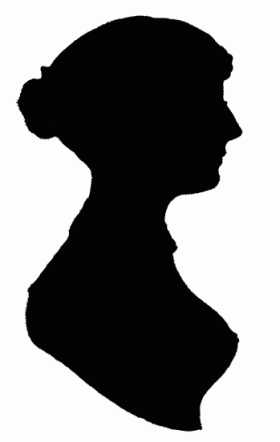From Virginia Woolf to Jane Austen: a personal journey

Virginia Woolf
As a law student in Paris years ago, I felt I was coming down with the flu and pushed the door to my neighborhood bookstore. I needed to purchase something to while away the unpleasantness to come.
I browsed the shelves and picked up a paperback titled Orgueil et Préjugés, by one Jane Austen, an author I had never heard of. Indeed, for some unfathomable reason, she remains fairly obscure in France. I read the foreword, and that at least was by a very famous writer, one I had read before with great admiration: Virginia Woolf. It turns out that the preface to this French edition was the translation of A Room of One’s Own…
And what things did Virginia have to say about this unknown Miss Austen!
One after another she creates her fools, her prigs, her worldlings, her Mr. Collinses, her Sir Walter Elliotts, her Mrs. Bennets. She encircles them with the lash of a whip-like phrase which, as it runs round them, cuts out their silhouettes for ever. But there they remain; no excuse is found for them and no mercy shown them. Nothing remains of Julia and Maria Bertram when she has done with them; Lady Bertram is left “sitting and calling to Pug and trying to keep him from the flower-beds” eternally. A divine justice is meted out; Dr. Grant, who begins by liking his goose tender, ends by bringing on “apoplexy and death, by three great institutionary dinners in one week”. Sometimes it seems as if her creatures were born merely to give Jane Austen the supreme delight of slicing their heads off.

Jane Austen Silhouette
A novelist who delights in decapitating her characters? These words of Virginia Woolf sealed my choice, and in a way my literary fate. I hurried home with my paperback and my germs. The latter were gone in a matter of days, but the former would never leave me. I read Orgueil et Préjugés in one sitting, engrossed by the brilliance, the wit, the irony, the unsentimentality of Jane Austen. Then I reflected that it was but a translation (I was not yet a translator, and in my youthful arrogance disdained the achievements of that craft.) What if the English original were still better?
Once recovered, I headed for the library, and there I found the complete novels of Jane Austen waiting for me, in English editions. I began, of course, with Pride and Prejudice. At first I was a bit distrustful of my high school English, but soon forgot my misgivings as I became immersed into Jane’s prose. Her English became the only one I felt I knew.
Then I moved on to Emma, which I liked still far better than Pride and Prejudice, and Northanger Abbey, Sense and Sensibility, and finally my favorites, Mansfield Park and Persuasion. There was no going back. I read and reread those novels dozens of times, and they led me to other great works of English literature: the novels of George Elliott, Henry Fielding, Anthony Trollope, Emily Bronte, Elizabeth Gaskell and many others. I would never have met those but for my encounter with Jane Austen.
I took me many years to find my own inspiration and pen my first novel. I hesitated between writing it in my native French or my acquired English. But again Jane’s novels were there by my side. I knew them almost by heart, and whenever I hesitated on the turn of a sentence, I knew one of them would be at hand help me out of my dilemma.
I hasten to say that my own novels, in themes and characters, have little to do with Jane’s. But on occasion, while writing Mistress of the Revolution, I caught myself writing bits of dialog with her in mind. Those were cut from the final version because the novel was deemed too long, but they remain among my favorite passages, and I may post them here some day.
So, with all due humility, affection and admiration, I can say that Jane Austen taught me to write in English.




